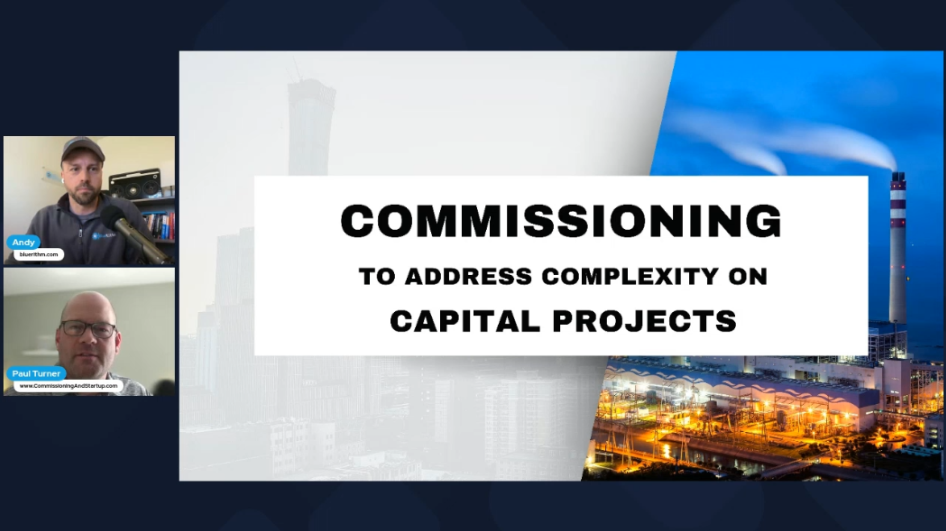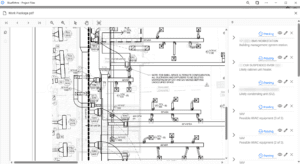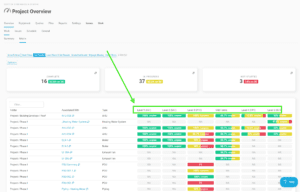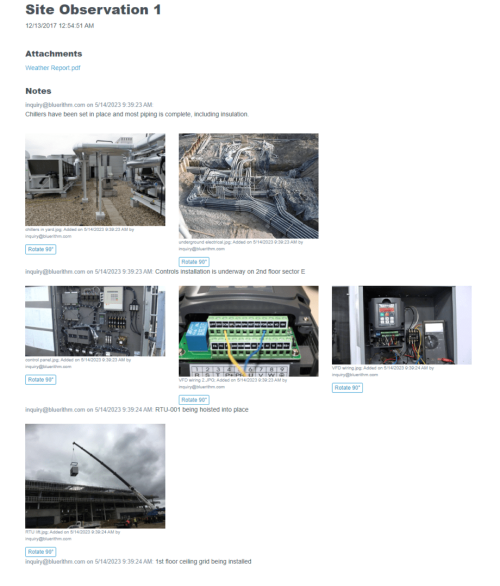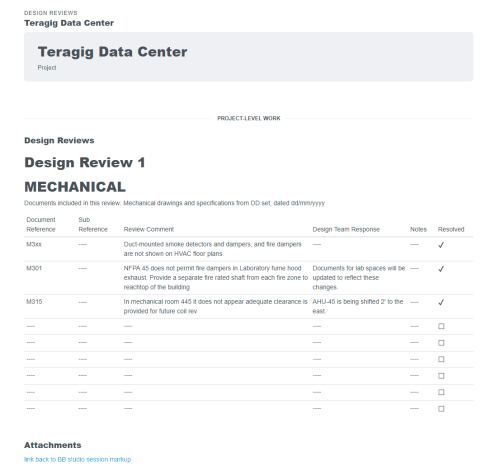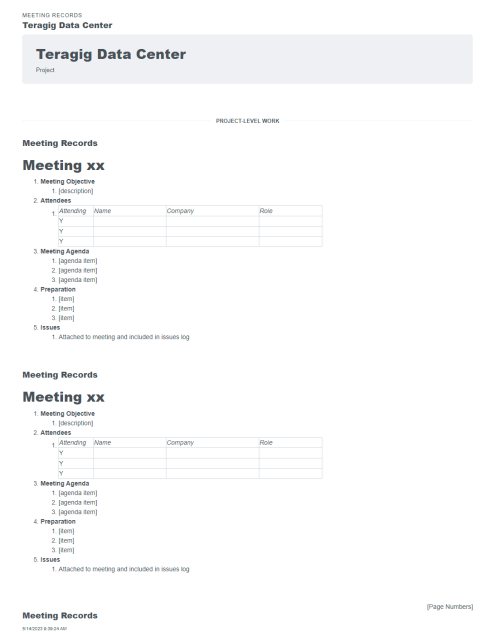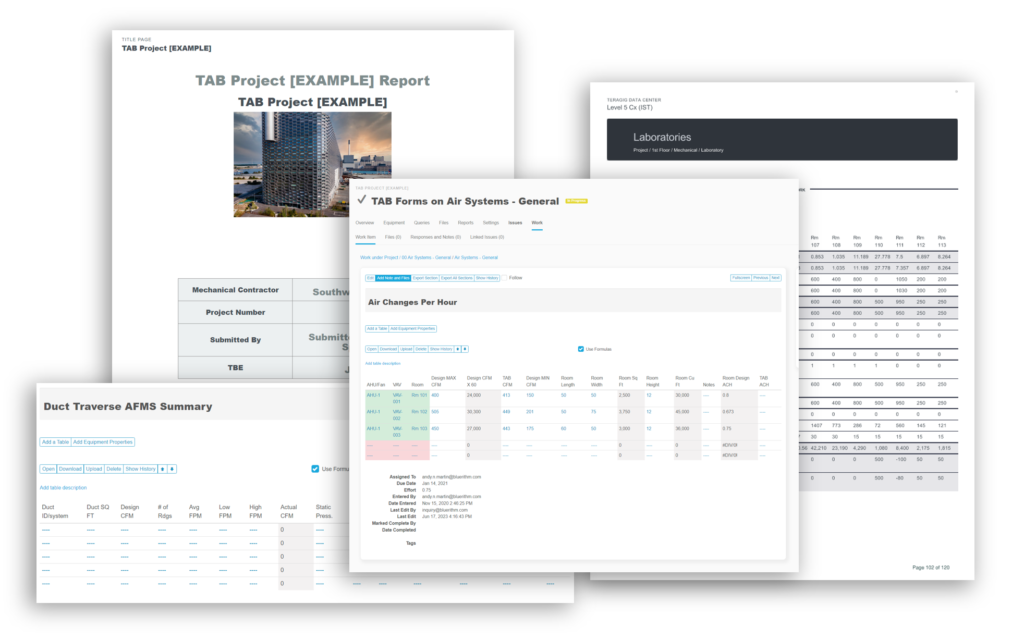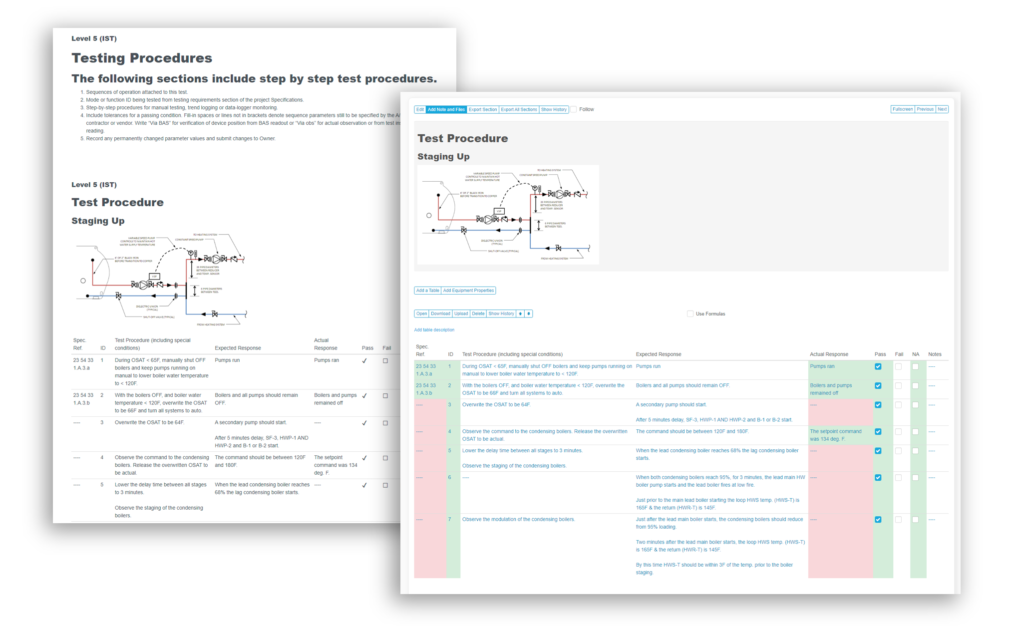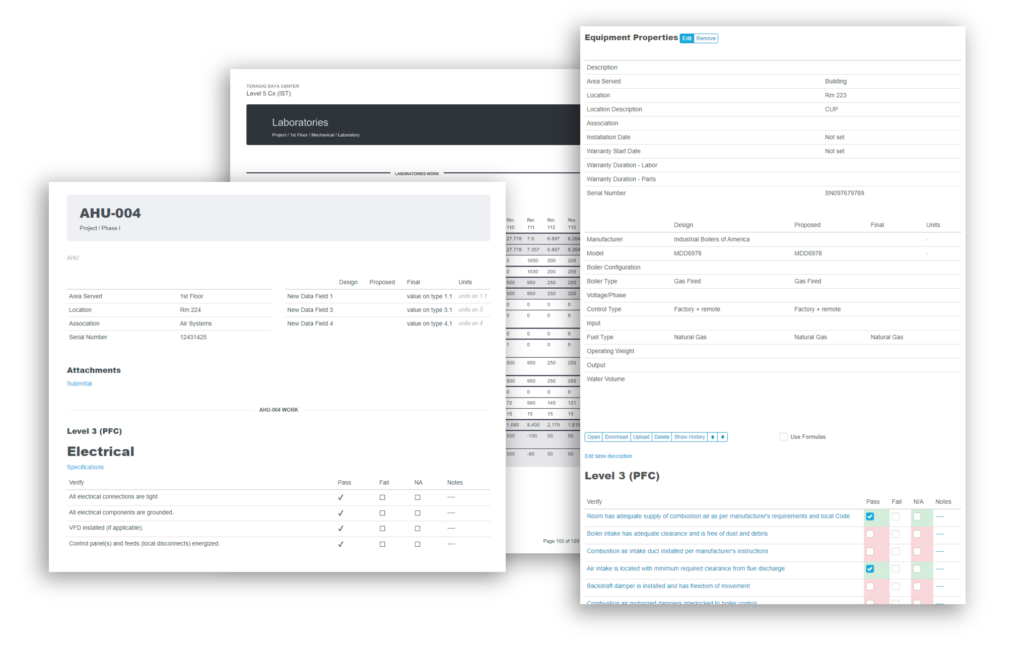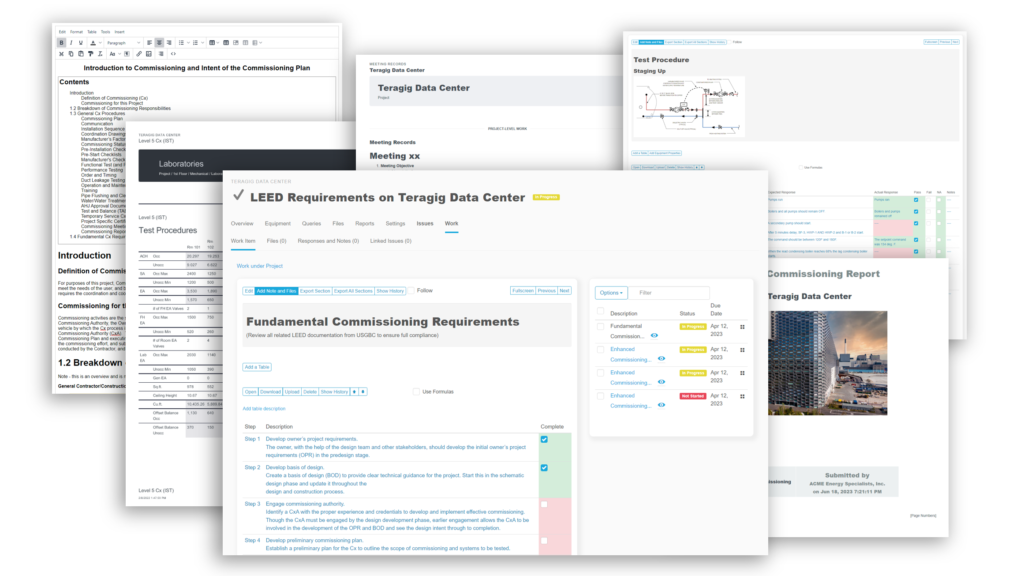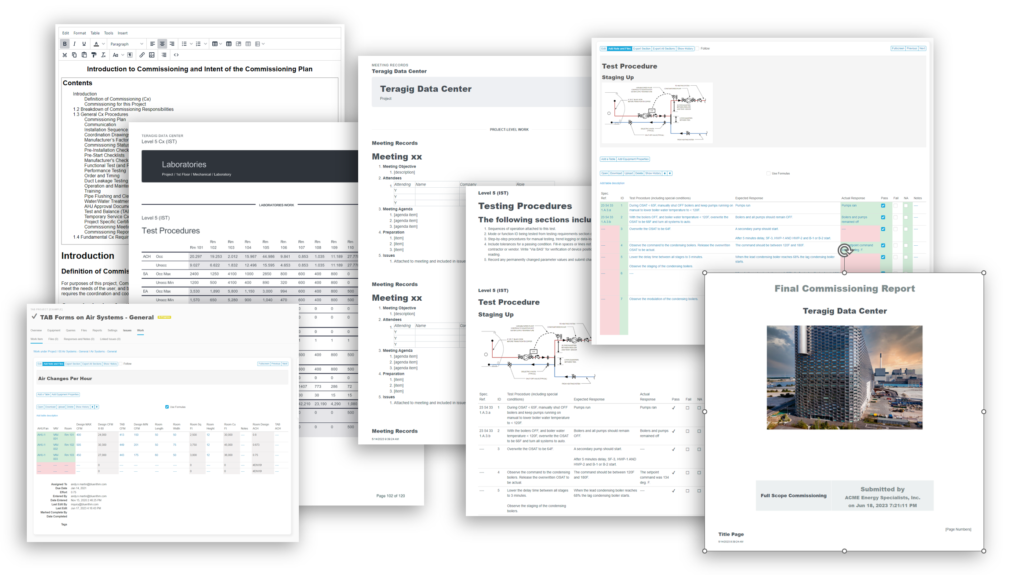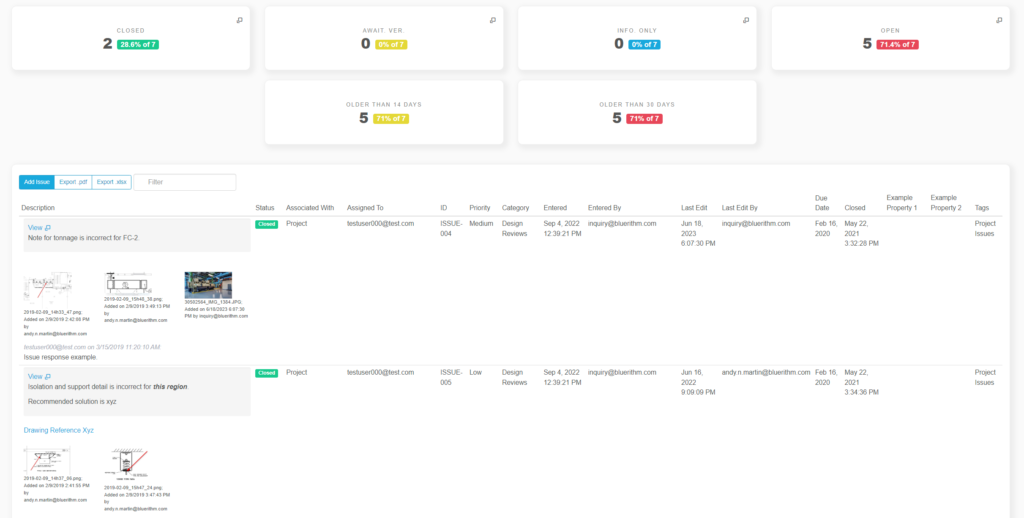Transcript
Andrew Martin: [00:00:00] All right. Hi, Paul. Good to be talking with you today. We’re going to talk about commissioning on big capital projects and commissioning specifically to address complexity on these projects. Welcome! How’s everything going today?
Paul Turner: Things are going great. I’m always happy to talk about commissioning. I love commissioning
It’s a complex topic but it’s lots of fun to talk about.
Andrew Martin: Paul, if you want to just introduce yourself, give a little, get a little background and. And then I can follow that up.
Paul Turner: For sure. Yeah. So, my name is Paul Turner. I’m an electrical engineer and a project management professional. I’ve been working in the industrial capital projects world for the last 15 years or so, getting lots of great experience trying to figure out this complex topic of commissioning and because it is such a complex topic, I’m also trying to help others with this challenge of commissioning so that we can successfully complete and deliver projects on time and on budget.
Happy to be here.
Andrew Martin: Awesome. I’m Andrew Martin. I work for a company called Bluerithm, which I founded back in 2016. [00:01:00] I grew up in the commercial construction world doing big commercial projects like data centers, stadiums, hospitals and then subsequently founded Bluerithm after just being frustrated day after day about how much we waste in the industry and how much time we waste spending doing repetitive tasks that could easily be automated with software. So, it’s been an interesting and exciting and times frustrating ride since then. But I love what I do and I love talking about this stuff as well.
So, just to cue up what we’re going to talk about today, we’re going to freewheel a little bit and I think keep it for any of the things that we hit on today, we could probably have a whole multi hour discussion about, but we’re going to talk about generally addressing the complexity of some of these large capital projects with commissioning.
Paul, it seems like there’s a lot of confusion about what that term commissioning even means in the industry and how it becomes part of the jargon we use even in different industry segments, whether it’s in the energy sector or, water treatment sector [00:02:00] or commercial sector, whatever it is, it means something slightly different to two different people.
So, from your standpoint, how do you answer the question of what does commissioning even mean?
Paul Turner: I think you’re right. Yeah, there’s lots of confusion about commissioning. The term commissioning on its own isn’t really that helpful because it can refer to a lot of different things like you mentioned there.
Are we talking about technical commissioning? Are we talking about commissioning project management? Are we talking about building commissioning or industrial plant process commissioning. The term commissioning even when you’re using it and speaking with someone on a job site, their understanding of what you’re talking about could be completely different.
There needs to be a bit more context behind it, right? Often the word commissioning is referred to the testing that takes place at the end of the project, but there’s a lot more to commissioning than just testing the equipment, right? There’s an entire commissioning process that spans the entire duration of the project starting early in projects during feed, where we can take a systems-based approach to make sure that the end of the [00:03:00] project comes together correctly. When people ask me, what is commissioning? It’s really the commissioning process, the project management steps to take to be able to methodically complete complex capital projects.
And on the projects that we work on, they are getting more and more complex, so we need to be implementing these project management processes for commissioning to make sure that everything from design, everything from construction, everything for commissioning comes together so that we can have the project completed and one functional plant process that meets the intended outcome of the project.
Andrew Martin: Yeah, I think that’s a definition, a description that could probably span all of these different segments. What the technical aspects and deliverables, procedures and workflows are within the different types of projects is going to differ a lot. But thinking about commissioning as a process that really spans the entire lifecycle of a project from conception through handover, I think is a helpful way to [00:04:00] frame it and in a helpful place to start to really make sure that it’s implemented correctly.
So, I’ve got a couple rough looking to say the least statistics. Some of these came out of some content produced by colleagues of Brent Flyvbjerg, who wrote the book, how big things get done. So, some of these statistics exist in that book. These are slightly different. They’re from a slightly different, but closely related study.
Some research that they were doing and up on the screen here, we have some average cost overruns for oil and gas, nuclear, wind and solar projects. So big energy projects very rough cost overruns, and do you think that misunderstandings or lack of full commissioning processes on these projects has anything to do or can be something that helps to address some of these issues that we see consistently from project to project?
Paul Turner: Absolutely. When you take a project management approach to commissioning starting earlier in your projects, then you’re [00:05:00] keeping that end goal of the project in mind, right? There’re two bookends to a project. The project has started, all the contracts are awarded, everybody’s mobilizing to site to get everything started.
But the back bookend to finish the project is really your commissioning process, right? And, you need both of those bookends on projects to make them successful, but when commissioning is left too late in projects, or there’s no project management approach to commissioning, then you’re missing that methodical way to complete projects.
Now, there’s certainly lots of challenges on projects, right? There’s long lead time of material. There’s Underground civil conditions, lots of construction challenges heavy civil construction, and large workforces to coordinate, but when you have that clear vision of what success looks like during commissioning at the end of your project, then everybody’s got that in mind as the goal to achieve on projects.
[00:06:00] So when we help more people understand commissioning, when everybody understands what the end of the project needs to look like, I can only think sharing that information and helping people understand this complex function of projects during commissioning is going to help projects go better when more people understand what the actual end of projects look like to achieve that end service date.
Andrew Martin: Excellent so just continuing down that path from the same study from both Boston Consulting Group they talk about three main categories of complexity that lead to some of these problems and overruns. And one of those categories they talk about are structural complexity. And this is exactly the stuff that, that you’re talking about here.
Related to, what’s being measured, the KPIs, scope, clarity, knowledge to execute the project to execute a commission, a full commissioning program, supply chains and all of these interdependencies. So, these seem like the precise things that commissioning helps to pull together and bridge the divide between when it’s [00:07:00] implemented as a process and a full program from the beginning and the early stages of a project.
The other two categories they talk about are stuff that’s probably cans of worms that are a little bigger than we want to open today and things that may even be outside of the outside of the realm of what commissioning would be dealing with, but these structural complexities seem to have a close relationship to the things that a commissioning program will address.
Paul Turner: Absolutely and maybe I’ll just add there that cost overruns on projects they’re hurting everybody, right? it’s an extra burden on society that we all pay for when projects are going 20, 30, 40 percent over budget we know where those costs are going, right? It’s the tax dollars that we pay.
It’s the fuel that we buy. It’s the electricity that we depend on. We’re all paying for these cost overruns one way or the other, right? I think it is a huge societal issue with the volume of work that’s ahead of us and the number of projects that need to be built. It’s a drag on society to, to pay for these extras that there’s [00:08:00] lots of places for money, right?
We’ve got huge projects to build to address all of our climate change initiatives, electrification, decarbonization, there’s big dollars to be spent and having an extra 20 30 percent on top of that is
Andrew Martin: Yep. Couldn’t agree more.
So to, to dive into some of these. Structural complexities and how we might address them with commissioning. I’m wondering if we can hit a couple of these key bullet points here to just hear from you a little bit more about how you think about commissioning and your expertise around, how this really gets implemented.
Have a few bullet points here to cover systems, processes, project management, training. Software and tools and what you may see coming down the pike in terms of trends and advice you have for, the next five, 10 years or so. So, systems and processes, can you talk about what you found most effective in standardizing commissioning across different projects?
Paul Turner: For sure. Yeah, I guess there’s always three parts of projects that we need, right? We need people on projects to do the good work that they do. [00:09:00] We need some processes for them to follow that methodical commissioning process to get to the end. And we need some sort of system to house all this information and convey it to everybody on projects so that everyone has a clear picture.
What’s been done for many years is to use spreadsheets to track all this stuff at the end of projects, but projects are just getting too big. They’re getting too complex and there’s so much time and money on the line that spreadsheets can’t really cut it anymore. Spreadsheets are maybe fine as a tracking tool to give you a list of a bunch of things to do, but they certainly can’t manage a process.
There’s no way to have spreadsheets actually manage workflows in who’s doing what when you get through this complex end of the projects. You need something more than that. You need some sort of commissioning software to be able to manage your processes, not just for the commissioning team, but to help everybody on projects understand what the complex end of projects look like.
So [00:10:00] without some sort of structured systems and processes that are being put in place early in projects. It’s pretty tough to get through to the end of projects in some sort of organized manner or some sort of consistent way that you know, that you’re going to be able to complete projects on time and on budget.
So commissioning plays a big role in this to help put these systems and processes in place so that we can successfully get to the end of projects.
Andrew Martin: Got it. So, in your experience what does a successful commissioning team often look like? Is it a combination of people from the design team, the construction team a separate third party commissioning team or some combination of those? How do you see these processes being most effective in terms of who they need to involve and who needs to really be bought into the process?
Paul Turner: So sometimes commissioning can end up a little bit too siloed, right? Groups aren’t maybe collaborating as close as we need. But when it comes to commissioning everybody’s involved in commissioning. Everybody really has a role in the commissioning process the [00:11:00] construction guys, they’re often the ones buying equipment.
So, they’re working with vendors for vendor startups. They’ve got pipe flushing and cleaning responsibilities for some of the early inspections. The design team is involved, right? Those are our subject matter experts, that are going to be verifying some of the equipment performance parameters and then the commissioning team, of course, doing a lot of the testing in the field for pre commissioning and commissioning.
Really, everyone is involved in commissioning. When we think about these large complex plant processes, there’s only one plant process that comes out of the project at the end, right? And when there’s one plant process, that can mean that there’s only one commissioning team working towards that with everybody involved and everybody participating towards the commissioning process so that it’s successful in the end.
So there’s one plant process. There’s one team, and there’s one process to follow through the entire duration of the project. That’s really the only way that it’s going to come together successfully in the end. [00:12:00]
The problem when we don’t have some of these systems and processes in place to help this one team pull this off in the end, as everything can get a little splintered and fractured and everybody doesn’t have that full visibility of what this process looks like, right? When all of these details are housed in a spreadsheet some of the commissioning team is going to understand that, but others in the construction, others in the design, who aren’t this familiar with commissioning, they’re not going to get the knowledge that they need or that visibility to know, to get down to the specific details of how they can contribute to commissioning as well. Which is why we need to get this information to everybody on the team. So, they have full visibility and clarity on what commissioning looks like and how they can contribute to the success of projects at the end.
Andrew Martin: Got it. Great. Yeah. It’s a team effort top to bottom. That makes sense.
When it comes to the project management and training aspects related to commissioning, how do you integrate the commissioning considerations into the project management [00:13:00] from the outset? You’ve touched on that a little bit already, but can you dig into it a little bit more?
Paul Turner: There definitely does seem to be a gap in the industry that some of the earlier groups on project owners or developers, or some of the project management team that’s setting up projects aren’t as familiar as what would be required for commissioning as obviously the groups that are intimately involved at commissioning at the end of projects.
The groups are at polar opposite ends of the project so it’s understandable that there’s a gap that their paths don’t necessarily cross on projects and maybe they’re speaking different languages and each group doesn’t understand the other, but we want to try and bring those two groups closer together where project management and commissioning are working closely together so that we can properly plan and execute projects so that both ends are successful.
The beginning of projects, the middle of projects, the end of projects. That’s [00:14:00] really the only way that projects are successful, right? Is when every stage of projects is successful. So, to try and bridge that gap on projects in the industry is definitely challenging. It’s not a new problem. It’s been around for decades.
But the tools that we have now, the internet, media, livestreams like this are a great way to get information out there to help bridge this divide. To help early groups on projects and end groups on projects, the commissioning team bridge that gap and get the right information in the right people’s hands so that everyone can understand this complex topic of commissioning.
Andrew Martin: Yeah, and that makes total sense. And speaking of getting the right information to the right in the right people’s hands what sorts of challenges are there right now to find good commissioning practitioners? And is this changing over the last few years? And do you think it’ll continue to change over the next five to 10 years? There’s a lot of talk in the industry about, the waves of retirement that are [00:15:00] happening and attracting new talent into the industry. So, how does this affect commissioning being that the good commissioning practitioner really has to have this holistic mindset, exposure, experience and understanding of the big picture from design to handover.
So, how do you bring people into that role that are just coming into the industry, or how do we backfill the gaps here in good talent?
Paul Turner: There are some extremely smart and intelligent commissioning people out there that are just an absolute pleasure to work with that know the industry inside and out and can just work their magic to make projects work in the end.
But the huge volume of work on projects, there’s just an unprecedented demand for project work and therefore for commissioning expertise so yeah, you’re right, these commissioning experts are getting harder and harder to find because they’re busy on other projects and they’re retiring so it definitely seems like the industry is in a position to lose a lot of this [00:16:00] expertise over the next 10 or 20 years As our wise commissioning experts are leaving the industry and taking their expertise with them.
So when we talk to a lot of project teams, it’s a struggle for sure, as they’re having lots of challenges getting commissioning people that actually have done this stuff before and understand how to complete complex projects, to find these people, to help them complete their projects. It’s definitely a challenge for sure.
We’re trying to get the information out there and show people that there are resources to at least understand this commissioning process and join these teams to be able to continue to learn on site, gather that valuable expertise from wise commissioning experts before they leave the industry so that we can soak up this knowledge, get it documented into systems and processes and checklists so that we do have a method for some of the younger generations to come into and help learn this stuff.
It’s definitely a challenge that we hear from a lot of people.
Andrew Martin: Yeah, I, and I agree. I think the best [00:17:00] thing that we can be doing, like you said, is creating the resources, creating the process, documenting it, trying to standardize as much as possible. In my current company, Bluerithm, what I found is that even people without exposure to the industry that come from a different background, once we had good process and good procedures in place and good training, it’s possible to bring people in from other backgrounds and have them succeed working with our extremely technical customer base in a very technical platform and be successful.
And to be perfectly frank, when I started the company, I didn’t believe that would be possible, but as a result of having good process and good training materials, it’s definitely a game changer and there’s a lot of people or there are others in the industry doing things to create these training programs including yourself, of course that has been proven to be helpful as well, instead of just relying on purely tribal knowledge and people passing the knowledge only [00:18:00] existing in their minds and then teaching people who are working side by side with them.
So still an important part of it, the whole apprenticeship concept, but having good processes, having repeatable standards and in ways to structure and think about commissioning and construction in general design I think is going to go a long way and we’re going to have to do that and have to be better at that to be successful as all these folks are retiring.
Paul Turner: It’s honestly the only way, is with information and knowledge, right? And we need to document the knowledge of our wise commissioning experts before they leave. We can’t, unfortunately going to be able to rely on the people like we have for the last several decades, right? We need some process in place and software is a big part of that to document those processes and standardize things so that the new people coming into the industry have a starting point to learn and understand as they grow into some of these more senior roles as well.
Andrew Martin: That’s a reasonable segue into the next main topic here. Besides [00:19:00] the challenges with the next generation of the workforce, the next generation of commissioning practitioners, what other trends do you see shaping the commissioning process in these big capital and industrial projects? And what advice would you give to folks looking to improve their commissioning process with these trends and future trends in consideration.
Paul Turner: Yeah, projects are just getting more and more complex. It’s like that for everything, right? Everything’s interconnected, everything’s automated and remotely monitored and controlled.
The complexity of projects, the digital control systems that just keep getting more and more complex, and that’s going to continue for forever, right? As society advances, as we’re taking advantage of some of these new technologies, we need to be implementing new and better ways to complete these more complex projects on top of the tacit knowledge that’s leaving the industry, it’s going to get harder and harder to complete projects.
There’s just not enough [00:20:00] people, there’s an unprecedented amount of work. We need better systems and processes to complete these large capital projects. Projects are already struggling, as some of the data showed earlier, right? Nine out of ten projects are late and over budget, and that’s only going to compound as the volume of work continues to increase, projects continue to get more complex, there needs to be new and better ways to complete projects.
Commissioning is that fundamental role to complete projects, so it needs some upfront focus early in projects to make sure that we can successfully complete these complex projects and the only way that I know how to do that is with information to help people understand what this complex process looks like so that we can use the systems, we can set up the processes and help people understand the complexity of finishing these large capital projects.
Andrew Martin: Excellent advice. Cool. Any parting thoughts or anything else you wanted to talk about today, Paul? Otherwise, I think that’s a pretty good place to, to wrap it up.
Paul Turner: Yeah, there’s definitely [00:21:00] lots of challenges in the industry and there’s going to be more continued challenges for sure.
Definitely be looking at how to engage commissioning earlier in your projects, what systems and processes you’re going to be using, the project management approach that’s needed to, pull off the complexity of these projects don’t defer it to too late. Sometimes commissioning is viewed as a hot potato, right?
And, or years in advance, what do we do with commissioning? Throw it here, throw it there and it just doesn’t get the thought that it needs. But when there is some upfront discussion and commissioning is thought about and properly planned, it can go much better saving projects, time and money.
So, definitely reach out check out my website at commissioningandstartup.com. Find me on LinkedIn, ask me any questions, always happy to help and always happy to chat about commissioning.
Andrew Martin: Yeah, excellent. Thanks, Paul. It’s been great talking to you. If anybody wants to get in touch with me, you can go to bluerhithm.com see what we’re up to or find me on LinkedIn. Paul’s pretty active on LinkedIn as well. Yeah, thanks, Paul. It’s been fun. [00:22:00] And we’ll talk to you again soon. Thanks a lot.

